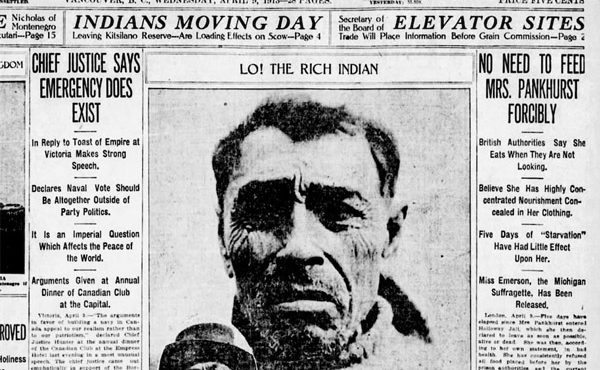

[Editor’s Note: Affordability is a major concern in Vancouver – and is arguably the issue that will govern the future of the city for the foreseeable future. With this in mind, the Mayor’s Affordability Task Force has a large burden to bare on its shoulders. So, we are happy to cross-post one of the only articles to-date — written by Nathan Crompton, Sean Antrim and Andrew Witt of The Mainlander — with a thorough breakdown of all its members and what their take is on how it may affect Vancouver. Although only time will tell what the legacy of the Task Force will be, getting different perspectives and intelligent voices outside the mainstream media on the matter is an important contribution to the discussion.]
Two weeks after Vancouver was once again named one of the most unaffordable cities in the world, Mayor Gregor Robertson has unilaterally appointed the members of the city’s “Blue Ribbon Affordability Task Force.” The fourteen appointees of the task force are drawn from a list of prominent developers, landlord lobbyists, architects, and industry insiders. There is not one person on the task force to represent renters, who are the most negatively affected by the housing crisis, and who represent 55% of the city’s population.
The task force was first announced in the Mayor’s opening speech after the re-election of Vision Vancouver in November 2011. Since November, the Mayor has been laying the groundwork and ‘terms of reference’ for the task force. The most important term-of-reference outlines how the city will carry out the privatization of Vancouver’s social housing stock, its demolition, and subsequent sale to private partners. While initially the idea was made in vague reference to “leveraging the city’s land base to help create partnerships with private and public bodies,” the Mayor has recently made it clear what the city has planned:
We’re looking at opportunities to leverage City land. Vancouver has a huge portfolio of land and buildings that we need to get highest and best use out of…What can we do with our existing public housing stock to maximize the opportunity?
The announcement of a “task force” recalls the city’s “affordable rental housing roundtable” process in 2009. In the wake of the financial crash of 2008, developers, financiers, and other stakeholders were invited to a series of workshops in the spring of 2009. The result: a report recommending tax breaks for developers in order to “incentivize” the development of rental housing. The policy that emerged was STIR, which the Mayor referred to as an “economic stimulus” for the hard-done-by development industry. Unsurprisingly, the balance sheet of the past three years shows that the tax-breaks-for-developers housing strategy delivered few rental units and literally zero affordable units of housing. It did deliver generous campaign donations from the development industry to Vision Vancouver.
Who is on the panel?
Even a local right-wing commentator has said in an online conversation with The Mainlander that he is “taken aback at how many BC Liberals/NPA folks were on [the task force].” In fact, the list of recent appointments does not come as a surprise given the track-record of the Vision council, the already-established ‘terms of reference’ of the task force, and the earlier appointment of developer and right-wing multimillionaire Olga Ilich as co-chair of the task force. A look at some of the other members of the task force will provide insights into what can be expected from in the way of recommendations, which are due June 2012.
A important appointment is the CEO of the BC Apartment Owners & Managers Association, Marg Gordon. Through the BCAMOA, Gordon lobbies for over a thousand landlords, who together own over a hundred thousand rental units. If there is one demographic who benefits most from the housing crisis in British Columbia, it is landlords. According to Gordon and the BCAMOA, there is a “significant negative gap between the rising costs associated with rental housing and the allowable rental rate increases.” Despite record low interest costs and skyrocketing rents, Gordon’s position is that either the government should give landlords more tax breaks or else landlords should be allowed to increase our rents.
Another of the appointments is Colleen Hardwick, an insider of the real-estate world and a descendant of Walter Hardwick. In 2005, she ran for a City Council position with Sam Sullivan and the NPA, receiving donations from Concord, Wall and Aquilini developments (among others). She speaks emphatically about the supposedly pressing “crisis in the consultation world.” Colleen operates New City Ventures, a self-described “corporate incubator,” which runs Placespeak, a startup already involved in the City’s “Talk Housing With Us” initiative.
Another appointee to the task force is Mark Guslits, an architect who served as chief development officer for the Toronto Community Housing Corp (TCHC). In 1999, Guslits was named the “special adviser on housing development for the city” and was in charge of building affordable housing in Toronto. Guslits’ role in addressing affordability was negligible, if not negative, and in the wake of his tenure the Toronto Star quoted the balance sheet of the situation:
The waiting list for subsidized housing stretches to 60,000 households in Toronto and 26,000 elsewhere in the GTA — numbers so high that some people die of old age before getting placed. That, combined with evictions, untold numbers of families doubling up in apartments, and thousands of men, women and children sleeping in homeless shelters, is linked to a severe shortage of affordable rental housing for low-income earners.
After failing to address affordability, Guslits was nonetheless made responsible for the TCHC’s revitalization of Regent Park in Toronto. Regent Park is an ongoing, large-scale gentrification initiative that has already seen broken promises and displacement, not to mention increased property values that are putting even more pressure on renters in the surrounding area. The stated goal of the Regent project is to limit the number of low-income people living in one place and therefore erase the“blight” they cause by their very existence. On this point, in defense of old school and reactionary planning ideology (if not outright class war) Mark Guslits is clear: areas taken over by “manifestations of low-income people living close together” must now be “returned to the city.”
Toronto’s Regent Park draws similarities to Vancouver’s Woodward’s Project, where in a “mixed” housing development the poor are cordoned off and policed away from wealthy and middle-class condominium owners. “Mix” is, according to UBC researcher David Ley, a “transitional” concept meant to pave the way for broader gentrification — as demonstrated already with the more advanced Woodward’s project. The model at Regent Park could also be compared to the Little Mountain redevelopment in Vancouver, where non-market housing projects are flattened to make way for condos. As mentioned, Affordability Task Force’s ‘terms of reference’ explicitly mention the need to assess the financial “opportunity” presented by the city’s existing social housing properties.

Nathan Edelson is a former City Planner who worked with the City for over 25 years, and who now teaches at UBC’s School of Community and Regional Planning. During his term as city planner for the Downtown Eastside, he pushed the concept of “Revitalization Without Displacement,” but has recently done a u-turn in support of the City’s gentrification plan for the Downtown Eastside. Instead of waiting for the results of the city’s Social Impacts study, he lent his voice in support of height increases and unregulated condos for an areas with hundreds of low-income seniors. It is worth noting that Ray Spaxman, another former planner who instead came out against the plan, is not on the panel.
Just up the street from Chinatown is the large-scale City Gate condo development on Main and Terminal. City Gate is the project of Bosa Development, whose Vice President, Eric Martin, was also appointed to the task force. City Gate is identified as the beginning phase of gentrification of the Downtown Eastside (after Expo 86, Bosa bought up the two block parcel between Main and Quebec North of Terminal) and Bosa Development continues to be a major developer in the city.
Another appointee is Peter Simpson of the Greater Vancouver Home Builders Association. Simpson himself has already weighed in on the task force, stating: “the panel should recommend improvements to the snail-slow approvals and permitting processes. It remains to be seen if blue ribbon can trump red tape.”
Other members of the task for include Alan Boniface (behind local gentrification projects like 3333 Main and the False Creek Olympic Plaza, and further away from Vancouver, large-scale development projects in China) and Al Poettcker, President & CEO of UBC Properties Trust. Poettcker is a significant pick because he represents one of the few gentrification projects in Vancouver defeated by the political organizing of activists. Five years ago UBC Properties Trust tried to build a $40 million dollar underground bus loop that was supposed to take visitors and students through a mandatory shopping mall before entering the campus proper. Students and faculty fought against the aggressive commercialization of the campus core and won the fight.
The only possible voices of opposition we can foresee on the panel are Kenneth Kwan, with SUCCESS, and Michael Lewis, Executive Director of the Canadian Centre for Community Renewal — neither of them however, are connected to the political organizing of low-income people across the city, and it is likely that their voices will be drowned out by the dozen big players who want to maximize profits and political capital for the development industry.
In short, a strong argument can be made that the Housing Affordability Strategy is a gentrification strategy. Existing affordable housing, whether SROs in the Downtown Eastside of low-income apartments in Mount Pleasant, will be planned for demolition, erased to build housing that is affordable for young urban professionals. In his press release, Mayor Gregor Robertson said: “Vancouver must be a city where our children can afford to live and raise their families.”
If Vancouver continues along its current path, it will only be the children of the rich inheriting their down-payment and legacy of displacement who can afford to live in this city. As long as the status quo remains in place for the coming years, the frontline of the housing struggle continues to be against the property-owning class and their political parties.
***




One comment
The cancelled development at UBC was a “gentrification project”? Maybe if you define gentrification as “development that the Mainlander doesn’t like”.
Given the average income and future earnings of UEL residents and UBC students, that’s a pretty egregious error.